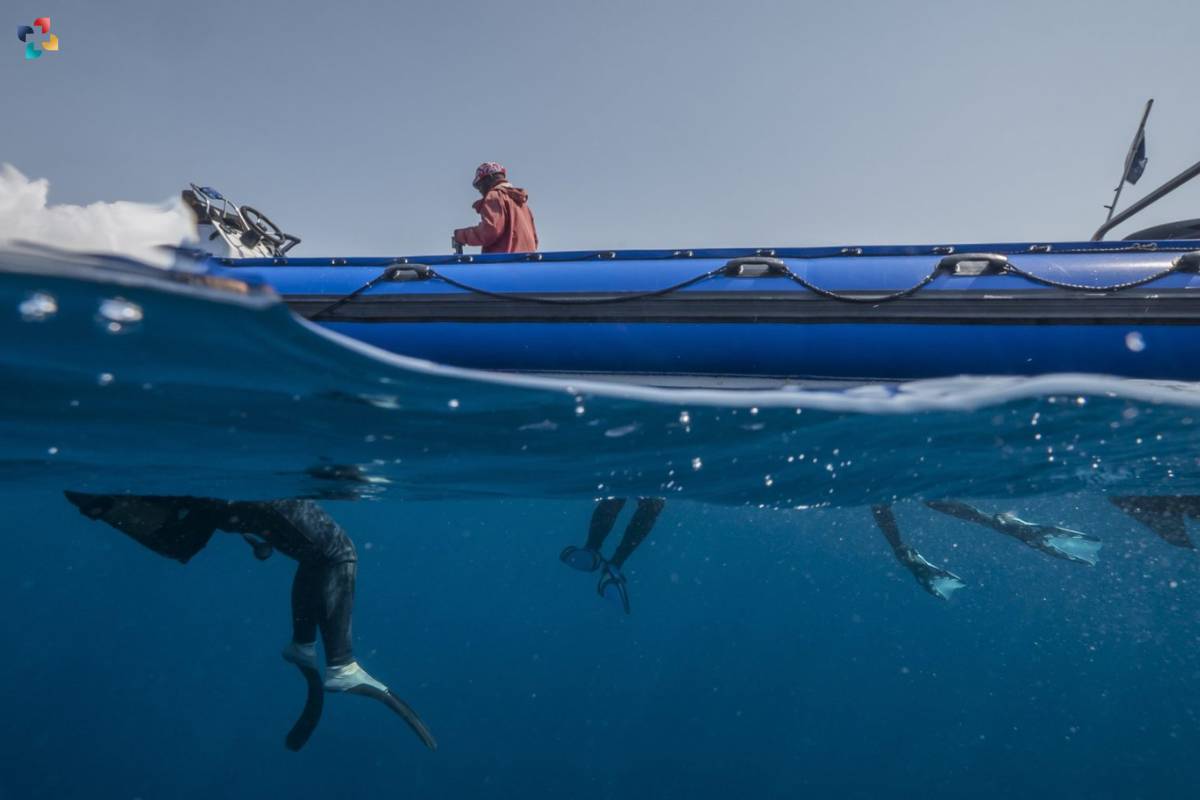A career in marine biology gives doors to an amazing and exciting realm of exploration beneath the waters. As our knowledge of marine ecosystems expands, so does the need for qualified experts in this area. A career in marine biology offers a variety of options for research and conservation, from investigating coral reefs to solving the mysteries of deep-sea animals. We go into the complexities of pursuing a meaningful career in marine biology in this extensive guide, including the educational options, employment opportunities, and the satisfying feeling of making a positive difference in the conservation of our oceans.
Educational Pathways for a Career in Marine Biology:
Pursuing a career in marine biology typically begins with a strong foundation in biological sciences. Many aspiring marine biologists pursue undergraduate degrees in biology, marine science, or related disciplines. These programs provide fundamental knowledge in biology, ecology, and oceanography, laying the groundwork for specialization in marine biology at the graduate level. Advanced degrees such as Master’s or Ph.D. programs offer specialized training in marine biology, with opportunities for hands-on research and fieldwork.
Exploring Career Opportunities in Marine Biology:

A career in marine biology offers a wide range of opportunities across various sectors, including research institutions, government agencies, conservation organizations, and academia. Marine biologists may specialize in fields such as marine ecology, marine conservation, marine microbiology, fisheries biology, or marine mammalogy. They may work as research scientists, conservationists, educators, consultants, or policymakers, contributing to scientific discovery, conservation efforts, and environmental management initiatives.
In addition to the mentioned sectors, marine biologists also find opportunities in industries related to aquaculture, marine technology, and environmental consulting. In aquaculture, they may contribute to the sustainable management of fish farms and shellfish operations, ensuring the health of aquatic populations and minimizing environmental impacts.
In marine technology, marine biologists may be involved in the development of underwater robotics, oceanographic instrumentation, and remote sensing technologies used for marine research and monitoring. Environmental consulting firms often employ marine biologists to assess the ecological impact of development projects, conduct environmental impact assessments, and provide expertise on marine conservation and regulatory compliance. These diverse career paths highlight the versatility and interdisciplinary nature of a career in marine biology.
Job Prospects and Salary Expectations in Marine Biology:
The job prospects for marine biologists are promising, with a growing demand for expertise in marine conservation and sustainable resource management. Employment opportunities exist in government agencies such as NOAA (National Oceanic and Atmospheric Administration), research institutions like marine laboratories and universities, environmental consulting firms, non-profit organizations, and marine parks and aquariums. Salaries for marine biologists vary depending on factors such as education, experience, specialization, and geographic location, with median salaries ranging from $50,000 to $80,000 annually.
Moreover, with the increasing focus on climate change and its impact on marine ecosystems, the demand for marine biologists is expected to continue growing. Government initiatives aimed at marine conservation and the sustainable use of marine resources further bolster job prospects in this field. Research institutions and universities offer opportunities for marine biologists to engage in cutting-edge research projects, collaborate with fellow scientists, and mentor aspiring students.
Environmental consulting firms provide avenues for applying scientific knowledge to real-world environmental challenges, while non-profit organizations and marine parks offer opportunities for advocacy, outreach, and public education. As marine biology encompasses a diverse array of specializations and career paths, individuals with a passion for the marine environment can find fulfilling opportunities to make a difference in this dynamic field.
Skills and Qualities Required for Success:

To excel in a career in marine biology, individuals must possess a combination of technical skills, scientific knowledge, and personal qualities. Strong analytical and critical thinking skills are essential for designing and conducting research studies, analyzing data, and drawing meaningful conclusions. Effective communication skills are also crucial for presenting research findings, collaborating with colleagues, and engaging with stakeholders and the public. Additionally, adaptability, resilience, and a passion for the marine environment are key qualities that drive success in this field.
Contributing to Conservation and Environmental Stewardship:
One of the most rewarding aspects of a career in marine biology is the opportunity to contribute to the conservation and sustainable management of marine ecosystems. Marine biologists play a vital role in monitoring and assessing the health of marine ecosystems, identifying threats such as pollution, habitat degradation, and climate change, and developing strategies for conservation and restoration. Through research, education, and advocacy, marine biologists work towards safeguarding the biodiversity and ecological integrity of our oceans for future generations.
Challenges and Opportunities in Marine Biology:

While a career in marine biology offers exciting opportunities for exploration and discovery, it also presents challenges and obstacles. Marine biologists may face funding constraints, logistical hurdles, and the complexities of working in remote or harsh environments. Additionally, the conservation of marine ecosystems requires interdisciplinary collaboration, innovative solutions, and public engagement to address pressing environmental issues. Despite these challenges, the growing awareness of the importance of marine conservation presents opportunities for marine biologists to make meaningful contributions toward preserving our oceans.
Conclusion: Nurturing a Passion for Marine Biology:
In conclusion, a career in marine biology provides an opportunity to both positively impact the ecosystem and discover the wonders of the ocean. Whether they are researching deep-sea habitats, marine mammals, or coral reefs, marine biologists are essential to the advancement of science, the support of conservation initiatives, and the development of environmental stewardship. A rewarding path toward a profession that changes the world is available to those who aspire to be marine biologists through education, hands-on training, and unwavering devotion to their love of the field.
FAQs
1. What types of organizations hire marine biologists?
Marine biologists are employed by a variety of organizations, including government agencies (e.g., NOAA), research institutions, environmental consulting firms, non-profit organizations, and marine parks/aquariums.
2. What are the typical job roles for marine biologists?
Marine biologists may work as research scientists, conservationists, educators, consultants, policymakers, or in roles related to aquaculture, marine technology, and environmental consulting.
3. What factors influence salary levels for marine biologists?
Salary levels for marine biologists vary based on factors such as education, experience, specialization (e.g., marine ecology, fisheries biology), geographic location, and the type of organization employing them.
4. Are job prospects favorable for marine biologists?
Yes, job prospects for marine biologists are promising, particularly in areas related to marine conservation, sustainable resource management, and climate change research.
5. What opportunities exist for career advancement in marine biology?
Career advancement opportunities for marine biologists include pursuing advanced degrees (e.g., Master’s, Ph.D.), gaining specialized skills through professional development, taking on leadership roles within organizations, and contributing to groundbreaking research projects that have a significant impact on marine conservation and environmental management.











